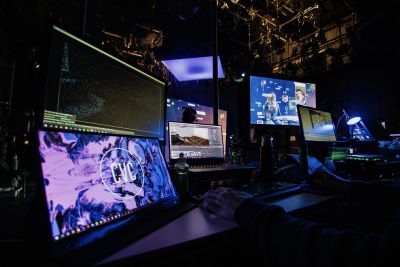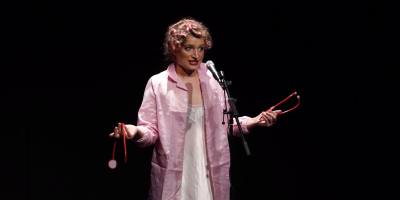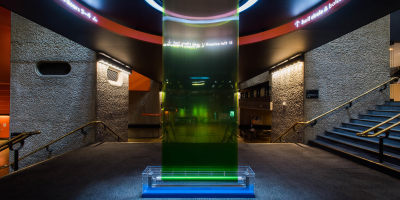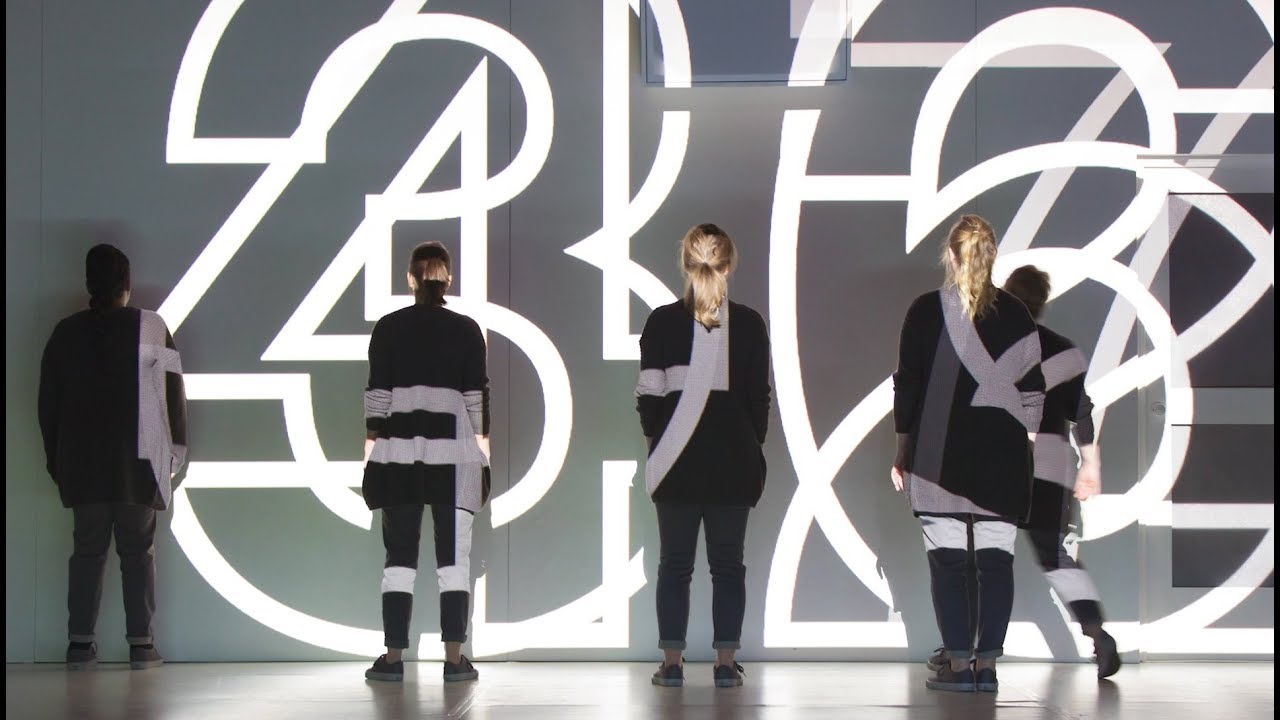
Breadcrumb navigation
Postgraduate research studentships
Find out more about the postgraduate research studentships available at Guildhall School.
PhD Studentship for research on psychological safety in elite performance training

PhD studentship at Guildhall School of Music & Drama, in association with Loughborough University
This opportunity is offered with a full fee waiver in the first instance, with the possibility of further funding. The position would suit applicants with a background in music, performing arts, psychology (particularly sub-disciplines of music, coaching, sports, organisational, educational, clinical or counselling psychology), education, or a related discipline. Experience in empirical research methods (quantitative and/or qualitative approaches) is essential. Candidates should hold, or expect to achieve before commencement of the studentship, a Masters-level qualification in a relevant field. Candidates without a Masters degree, but who can demonstrate equivalent professional experience, may also be considered. Experience of high-level performance is desirable.
This PhD programme of studies sits within an exciting new partnership between the Guildhall School of Music and Drama and the School of Sport, Exercise and Health Sciences at Loughborough University. The project revolves around exploring the significance of social environments that are psychologically safe within the context of elite performance generally, and music in particular. Environments or climates underpinned by psychological safety maybe key aspects for musicians’ and their teachers’ performance and wellbeing. Developing high-performing musicians requires social/learning environments within which musicians, teachers, peers and other related staff feel trusted and respected as well as able to take interpersonal risks (e.g. ‘thinking outside the box’ individually and collaboratively, stretching one's own boundaries, stepping outside one's comfort zone). It is in such environments that musicians (and their teachers) can express their creativity, resourcefulness, talents and skills without self-silencing (fear of expressing a point of view, thought, belief) or worrying about failure (fear of doing something wrong, looking foolish or not meeting expectations). The premise of this research is that recruiting very talented musicians and teachers is not enough; these individuals have to be able to bring their authentic selves to work and work together. This is a full-time PhD programme of study that aims to examine the interplay of such psychosocial concepts as psychological safety, interpersonal relationships, communication and team building. Methodologically, the research will employ both qualitative (e.g. content, narrative, thematic analysis) and quantitative (e.g. multi-level modelling) designs to generate and analyse data.
This project, part of a developing research partnership, has the potential to make a real impact in performing arts. In choosing Guildhall School of Music and Drama and Loughborough University for your research, you’ll work alongside academics who are leaders in their respective fields. You will benefit from comprehensive support and guidance, including tailored careers advice, to help you succeed in your research and future career. Please note that the PhD is due to start in September 2023 (for 3 years).
How to apply
This studentship is not currently open to applications.
PhD Studentship in digital performance

Following its strong performance in REF2021 and in line with its research strategy 2022–27, Guildhall School invites applications for a fully funded PhD studentship (i.e. stipend and full fee-waiver) in Production Arts commencing September 2023. Any research proposal in this area that can be supervised by School staff and existing industry partners will be considered, but preference will be given to those that engage with the following themes:
- integrated control systems for live performance technology
- the role of AI in production arts (e.g. simplification/automation of creative processes, tools for expanded ideation/pre-visualisation, machine-based/interactive performance)
- the development and application of VR/AR/XR in and for immersive performance
- hybrid (actual/virtual, online/co-present) performance practice and production
- underpinning IT frameworks for digital theatre and event production
- code editing/writing and software adaptation for bespoke performance events and environments
- adaptation and integration of current and emerging creative technologies
- developments and affordances of CreaTech for contemporary theatre, performance and live events.
Applications for part-time study from those working in industry, as well as applications from underrepresented groups, are particularly encouraged. The studentship may be taken full- or part-time and is guaranteed at the prevailing UK Research Council rate for 3 years full-time/6 years part-time pro rata, with the possibility of some further support after that. There is no requirement for the applicant to have industry work experience, but a thorough understanding of relevant professional practice is essential.
The successful candidate will be supported by the School’s Doctoral Programme leadership and administrative team, and by Production Arts staff. Where appropriate, engagement with the School’s Institute for Social Impact Research in the Performing Arts (ISIRPA) will also be encouraged and facilitated.
For enquiries or initial discussion, please contact Andy Lavender (Director of Production Arts), copying in Emily Orley (Research Lead, Production Arts) and Dan Shorten (Creative Director, Guildhall Live Events).
The successful applicant will receive a full fee-waiver, and an annual stipend in line with UKRI rates.
How to apply
This studentship is not currently open to applications.
PhD Scholarship in Music Therapy with a focus on Equality, Diversity and Inclusion

In light of an improved funding outlook and in line with its new research strategy, the Guildhall School invites applications for a fully funded Music Therapy PhD studentship (i.e. stipend and full fee-waiver) commencing September 2022. Proposals must address an issue of Equality, Diversity and/or Inclusion as it affects clinical music therapy practice or training in the UK or European context; this can include a focus on therapists or clients or both. Applications for part-time study from practitioners in clinical practice, as well as applications from underrepresented groups, are particularly encouraged. The studentship may be taken full- or part-time and is guaranteed at the prevailing UK Research Council rate for 3 years full-time/6 years part-time pro rata, with the possibility of some further support after that. There is no requirement for the applicant to be a currently practising music therapist, but a thorough understanding of relevant professional and clinical music therapy practice is essential.
The successful candidate will be supported by the School’s Research Department and Music Therapy Department staff, and will be expected to engage with the School’s Institute for Social Impact Research in the Performing Arts (ISIRPA).
For enquiries or initial discussion, please contact Ann Sloboda (Head of Music Therapy)
The successful applicant receives full fee waiver, and an annual stipend in line with UKRI rates.
How to apply
This studentship is not currently open to applications.
Guildhall Arts and Health Studentship

'Health and wellbeing' constitutes a priority area across European and global policy. Even before the Covid-19 pandemic, changes in disease profiles and demographic flux posed unprecedented challenges across Europe, not least because of increased pressure on public healthcare provision at a time of economic uncertainty. This has reinforced a shift, already evident in public health policy, that regards health and wellbeing as the responsibility of the citizen, not just the state. In turn, this has incentivised arts professionals to address health challenges, resulting in an expanding ‘arts and health' sector. This sector was recognised in a 2007 report by Arts Council England and the Department of Health as having ‘a major contribution to make to wellbeing, health, healthcare environments, to the benefit of patients, service users, carers, visitors and staff, as well as to communities and the National Health Service (NHS) as a whole'. The effort to map the field of arts and health has already begun, with reports such as the WHO synthesis study on arts health and wellbeing (2019) and Creative Health (2017); there are several book-length publications (e.g. Fancourt 2017, Clift and Camic 2015, Bates and Bleakley 2013), a dedicated journal and national centres. These indicate the arts have an important role to play in understanding psychosocial experiences of ill health and disability, addressing health issues as well as supporting the education and professional development of healthcare workers.
The new studentship seeks to contribute to this growing field by nurturing research in:
- representations of illness, disability and/or medical experience in 20th- and 21st-century theatre (including live art), production arts or music
- theatre and performance in medical and healthcare education especially nursing
- training musicians for work in music therapy/music and health
- music therapy and mental health (all age groups and including trauma-related work); delivery of therapeutic music services (including e.g. understanding ‘social prescribing’); evaluation of therapeutic music interventions
- other related innovative and interdisciplinary areas
Funding
The successful applicant receives full fee waiver, and an annual stipend in line with AHRC rates.
How to apply
This studentship is not currently open to applications.
Barbican-Guildhall Studentship

A product of the longstanding partnership between the Guildhall School and the Barbican, this three-year studentship represents our shared commitment to preparing and supporting creative practitioners to engage with the social context in which they operate.
Most recently, this studentship has focussed on Guildhall School’s and the Barbican’s respective strategic visions for the ‘artist in society’ and ‘arts without boundaries’. In 2020 we therefore invited proposals for research that responded to the following themes:
1. Understanding participatory, socially-engaged, community or applied arts practices.
We are looking to support research that documents, analyses and extends the practices of art-making in community contexts, and that values the specific skills, capacities and understandings that arts practitioners require in order to engage different communities in impactful arts activities. For example, your research might focus on the way such work bridges skills traditionally associated with artistic virtuosity with pro-social capacities such as facilitation (Preston (ed) 2018). Your research might do this by capturing and analysing the working practices of professional artists, identifying methods for engaging participation and co-creation with specific communities. Or it might investigate pedagogic approaches that support these skills and understandings in emerging artists. The successful applicant may be offered opportunities to observe, participate in or deliver activities as part of the Creative Learning programme (as is relevant to their previous experience and proposed research).
2. The role and value of arts and cultural institutions
The value of the arts has recently come under scrutiny in public policy (Bazelgette 2017) and large-scale research initiatives such as the Centre for Cultural Value. We invite proposals for research that explore the implications of these debates for cultural centres or arts training institutions. Your research will explore how such institutions are rethinking their relationships and responsibilities to the communities they serve. We especially welcome research that identifies emerging practices, undertaken by arts and cultural institutions, that go beyond established activities such as the provision of cultural experience (in the case of cultural centres) or education (in the case of training institutions). The successful applicant may be offered opportunities to research activities based at the Barbican or Guildhall School, for example the Creative Learning programme, Beyond Barbican and foyer space artistic programme (as is relevant to their previous experience and proposed research and subject to access and ethical clearance).
How to apply
This studentship is not currently open to applications.
Royal Opera House Doctoral Composer-in-Residence

The pioneering doctoral studentship in association with the Royal Opera House is for innovative and inquisitive composers who are looking to extend current knowledge about this vibrant art-form. During the three-year study period the successful candidate will complete a new chamber opera for production by the Royal Opera. Through this practical investigation they pursue a research enquiry that is relevant to both practice and scholarship in contemporary opera composition.
Successful candidates benefit from:
- A full fee-waiver and an annual stipend at AHRC rates
- A production funded by the Royal Opera
- Supervision and guidance from staff from Guildhall’s Composition department and the Royal Opera House
- Research training provided by the Guildhall School’s doctoral programme
Past projects
In 2016, the first doctoral Composer-in-Residence, Philip Venables, investigated the interface of spoken, sung and non-sung text in contemporary opera through his adaptation of Sarah Kane’s 4.48 Psychosis. The resulting opera, which opened at the Lyric Theatre Hammersmith, was a critical success. Hailed as ‘rawly powerful’ (Daily Telegraph, 4*) and ‘dizzyingly colourful’ (Financial Times, 4*), the production won the UK Theatre Award for Achievement in Opera.
Na’ama Zisser’s research introduces the cantorial music of Hassidic Jewish tradition to opera. Mamzer Bastard premiered at Hackney Empire in 2018. The Guardian described her ‘constantly shifting soundscape of darkening harmonies and subtle textural gradations that create continuously evolving patterns of tension and release’. Matt Rogers composed an opera, She Described it to Death though the production was unable to proceed as planned due to the Covid-19 pandemic. The current composer in residence, Oliver Leith started a doctorate researching ‘everyday’ sounds and will be staging his new opera in 2023.
How to apply
This studentship is not currently open to applications.


